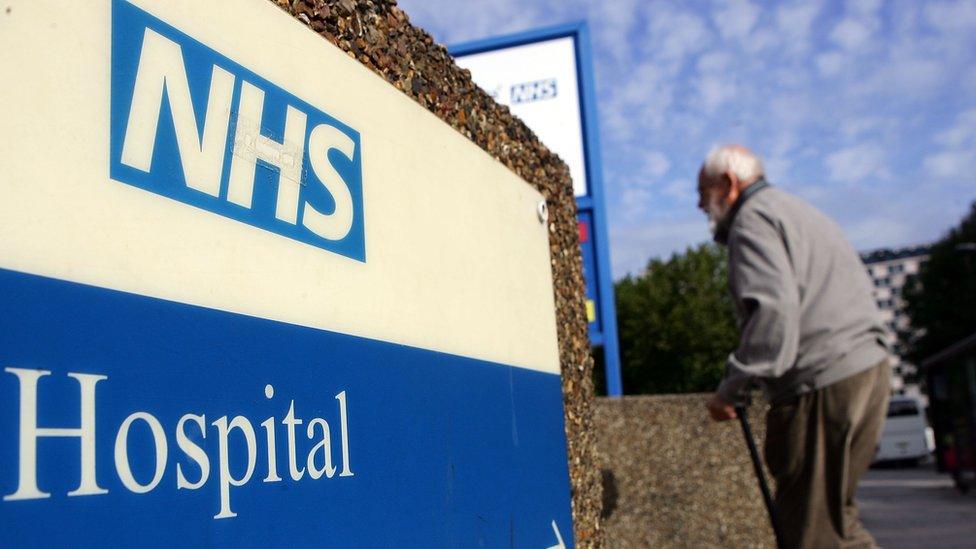Coronavirus: Why biggest challenge is yet to come on testing
- Published
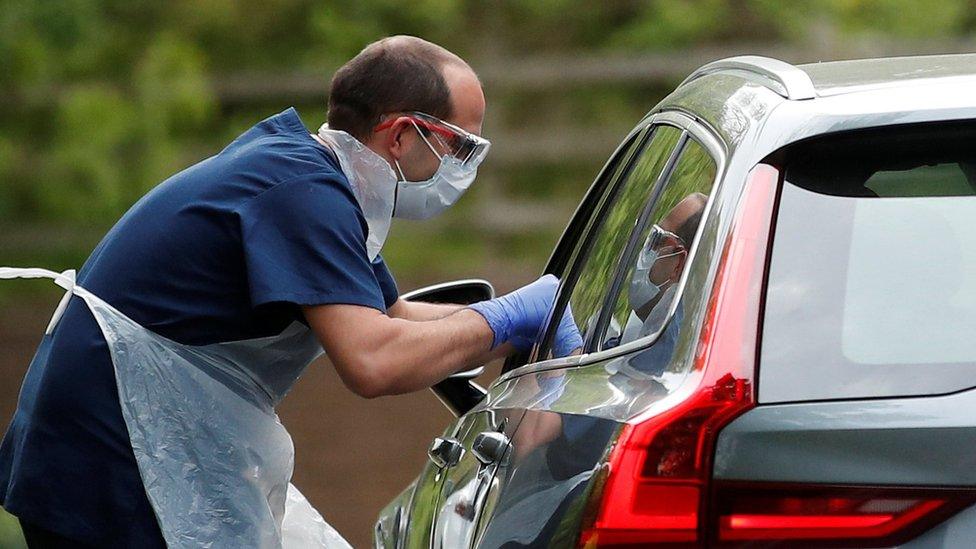
The government has hit its testing target, providing more than 120,000 coronavirus tests in a day by the end of April.
A herculean effort was needed - three mega-labs to process tests, an online booking portal, a network of drive-thru testing centres, a home-testing service and the military deployed to run 70 mobile testing units.
The government has been accused of being a little creative with its counting by including home-testing kits sent out to individuals and batches delivered to care homes, but not yet returned. Some of those may never be completed.
But even if you were to discount those, the government has still achieved an eight-fold increase on where we were a month ago. It is certainly an impressive feat.
However, there are still serious questions to ask about the government's approach to testing.
Was the government slow to react?
In the early days of the pandemic, the government was quick to boast about its testing capacity. The ability to carry out 1,000 tests was quickly increased to 3,000.
But as the outbreak spread, it quickly became clear the testing system was going to be overwhelmed.
Public Health England and health officials in the rest of the UK relied on eight small labs and their own testers.
That policy remained in place for weeks before the government entered into serious discussions with hospitals, universities and the private sector to increase testing capacity.
Testing will "help us to unlock the lockdown", Matt Hancock says
Should that have been done sooner? Many think so.
Part of the problem was that the official approach until the middle of March was to let the virus spread in a controlled way.
That meant there was little incentive to expand testing much beyond hospital patients.
Containing local outbreaks, the reasoning behind the World Health Organization's "test, test, test" mantra, did not seem a top priority.
Has the lack of testing to date cost lives?
Many believe the delay has proved costly. If there had been more testing available to care homes, for example, more lives might have been saved.
Test and trace "wasn't likely to add a huge amount given the resources" - Prof Chris Whitty (24 April)
Until mid-April tests were stopped once a care home passed five positive cases. And staff not showing symptoms were unable to get a test until late April despite concerns care workers were unwittingly causing outbreaks because they were infected but not showing symptoms, or transmitting the virus before falling ill.
When asked at a daily briefing recently whether that had cost lives, it was telling that Foreign Secretary Dominic Raab could only say lessons would be learned.
Prof Devi Sridhar, chairwoman of global public health at Edinburgh University, believes the UK, and others in Europe as well as the US for that matter, were "complacent" about the destruction that infectious disease outbreaks could bring, having escaped major outbreaks of Sars, Mers and Ebola.
Did the 100,000 target help or hinder?
Chris Hopson, of NHS Providers, which represents health service leaders, believes the target has certainly had a "galvanising" effect.
But he says the obsession with the 100,000 figure could be a "red herring" and instead may have led to "testing for testing's sake".
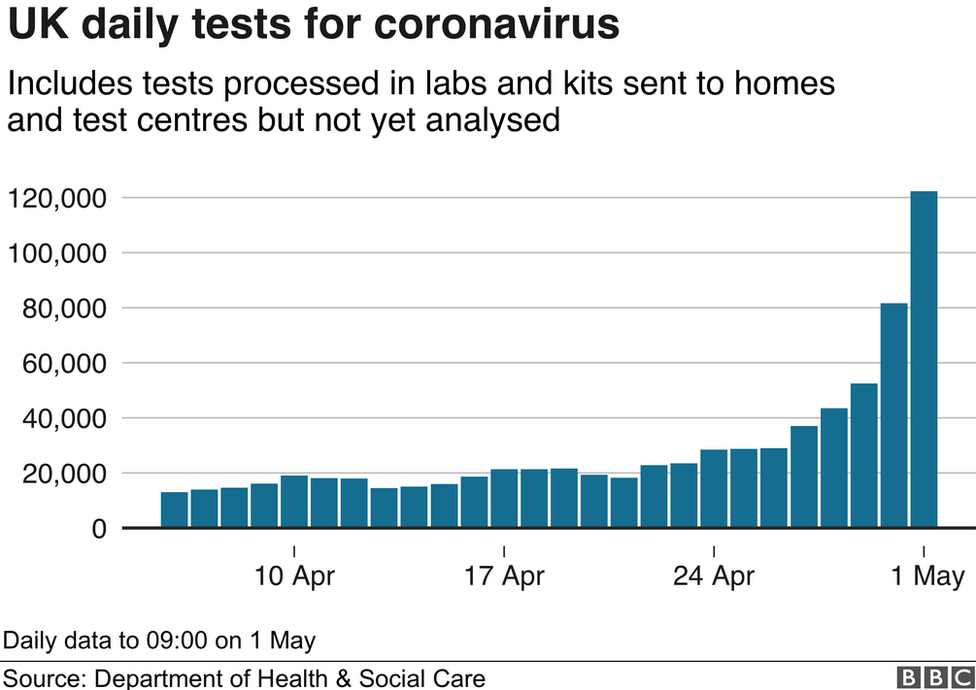
It is noticeable that in the past week, eligibility for testing has quickly expanded from hospital patients, care home residents and key staff to all over-65s and anyone who needs to leave home for work in England.
And yet care homes are still saying they are struggling to get staff and residents tested and NHS staff have reported being unable to book tests because the slots have already been taken.
Meanwhile, the Institute of Biomedical Sciences, which represents laboratory staff, has questioned the use of unregulated volunteers to carry out swab tests - if it is not done properly it can affect the accuracy of the test.

A SIMPLE GUIDE: How do I protect myself?
AVOIDING CONTACT: The rules on self-isolation and exercise
IMMUNITY: Can you catch the virus twice?
HOPE AND LOSS: Your coronavirus stories
LOOK-UP TOOL: Check cases in your area

How do we compare internationally?
Prof Allyson Pollock, an expert in public health from Newcastle University, says the effort has been undermined by "enormous" underfunding of public health in recent years.
Certainly, the UK has had to run to catch up.
South Korea, which has managed to contain the virus to such an extent that on Thursday it reported it had seen no new domestic infections, had more than 200 labs ready to carry out tests from the start.
It undoubtedly benefited from its experience in fighting the Mers and Sars outbreaks over the past two decades.
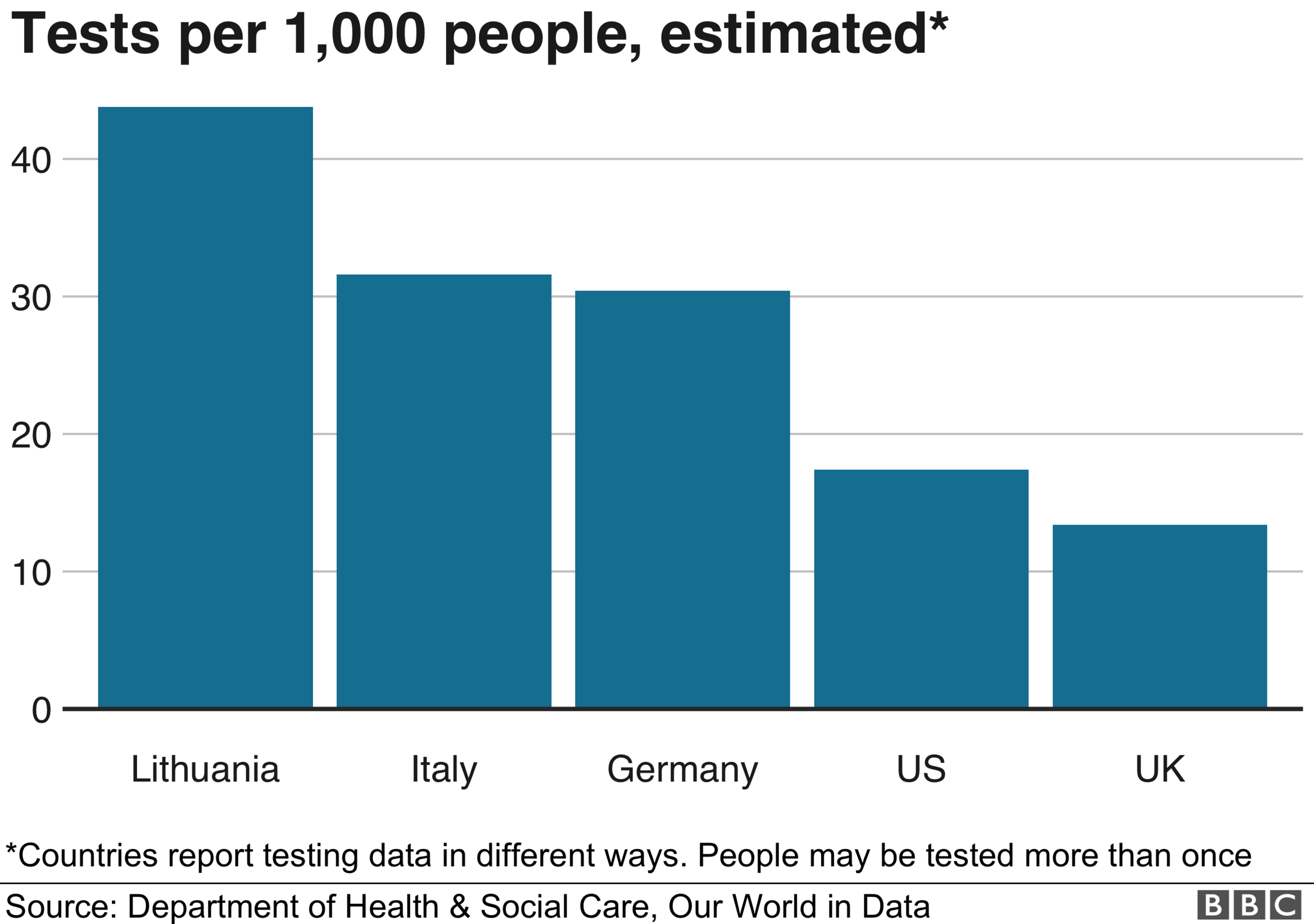
Germany, another country with which the UK is often compared unfavourably, also had an in-built advantage in that it had a well-established biomedical engineering industry, which meant it was not as hard hit by the global shortage of testing chemicals and kit that other countries were.
But there are plenty of other countries from Italy to Lithuania that have consistently out-tested the UK.
Prof Pollock also believes there has been a "lack of coherence" to the approach taken to testing with no over-arching strategy to underpin it.
In particular, she is concerned the UK may be ill-prepared for the next phase of the fight against coronavirus.
The biggest test for testing is yet to come
The ultimate goal will be to provide testing to anyone who needs it in the whole population so local outbreaks can be contained once lockdown restrictions begin to be eased.
But for containment to work that will need tests to be turned around quickly - it can still take 72 hours from start to finish for some - and then a quick and effective way of tracing people with whom infected individuals have been in close contact.
The government points to the contact tracing app in development and the "army" of 18,000 tracers that are being recruited. But as yet it is unclear how these will knit together with the testing system.
Local authorities, where many of these contact tracers are expected to be sourced from, have already expressed frustration at not being properly involved.
If the testing and tracing regime is not effective, any easing of lockdown is bound to fail.
The target for 100,000 tests may have passed, but the biggest challenge is yet to come.

Have you received a Covid-19 home testing kit? Share your experiences by emailing haveyoursay@bbc.co.uk, external.
Please include a contact number if you are willing to speak to a BBC journalist.
WhatsApp: +44 7756 165803
Tweet: @BBC_HaveYourSay, external
Send pictures/video to yourpics@bbc.co.uk, external
Please read our terms & conditions and privacy policy
- Published16 April 2020

- Published29 April 2020
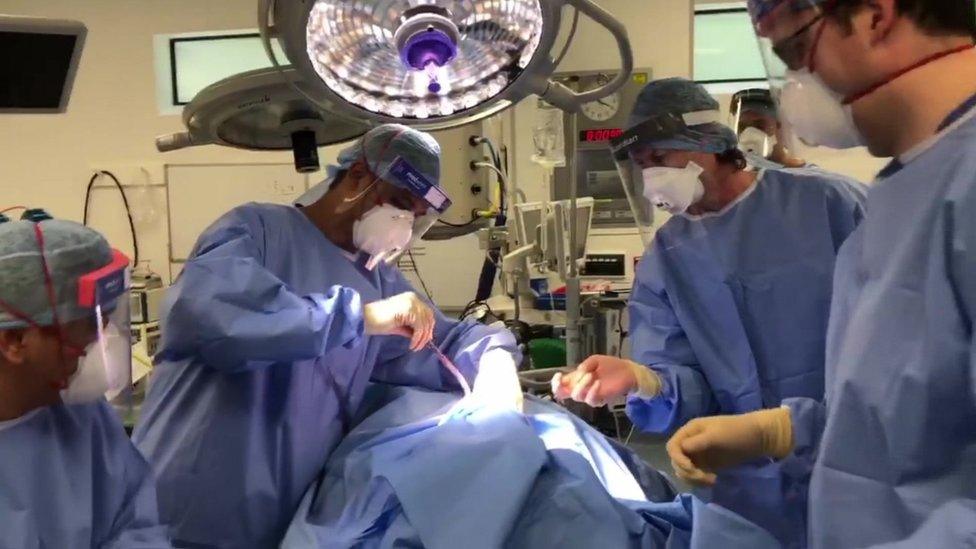
- Published30 March 2020
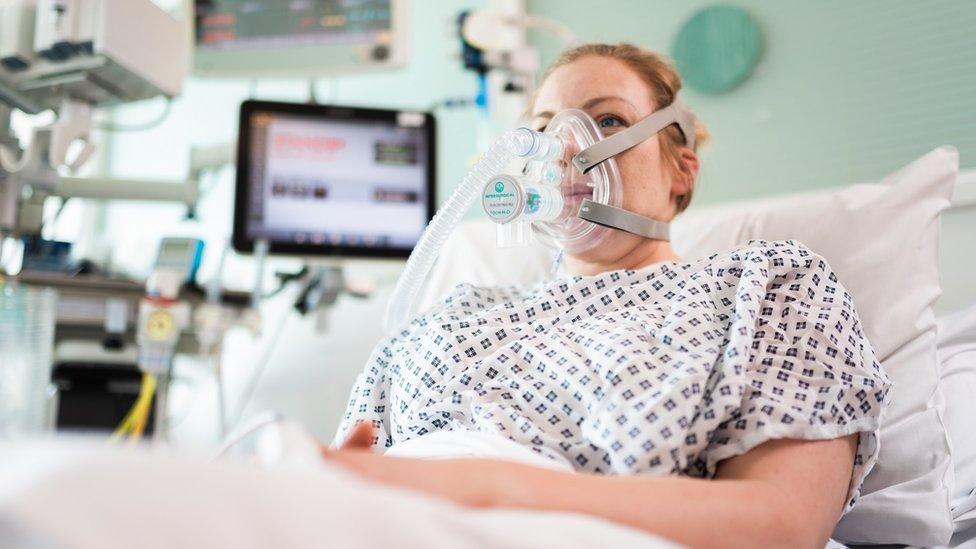
- Published4 August 2019

- Published6 January 2019

- Published8 February 2017
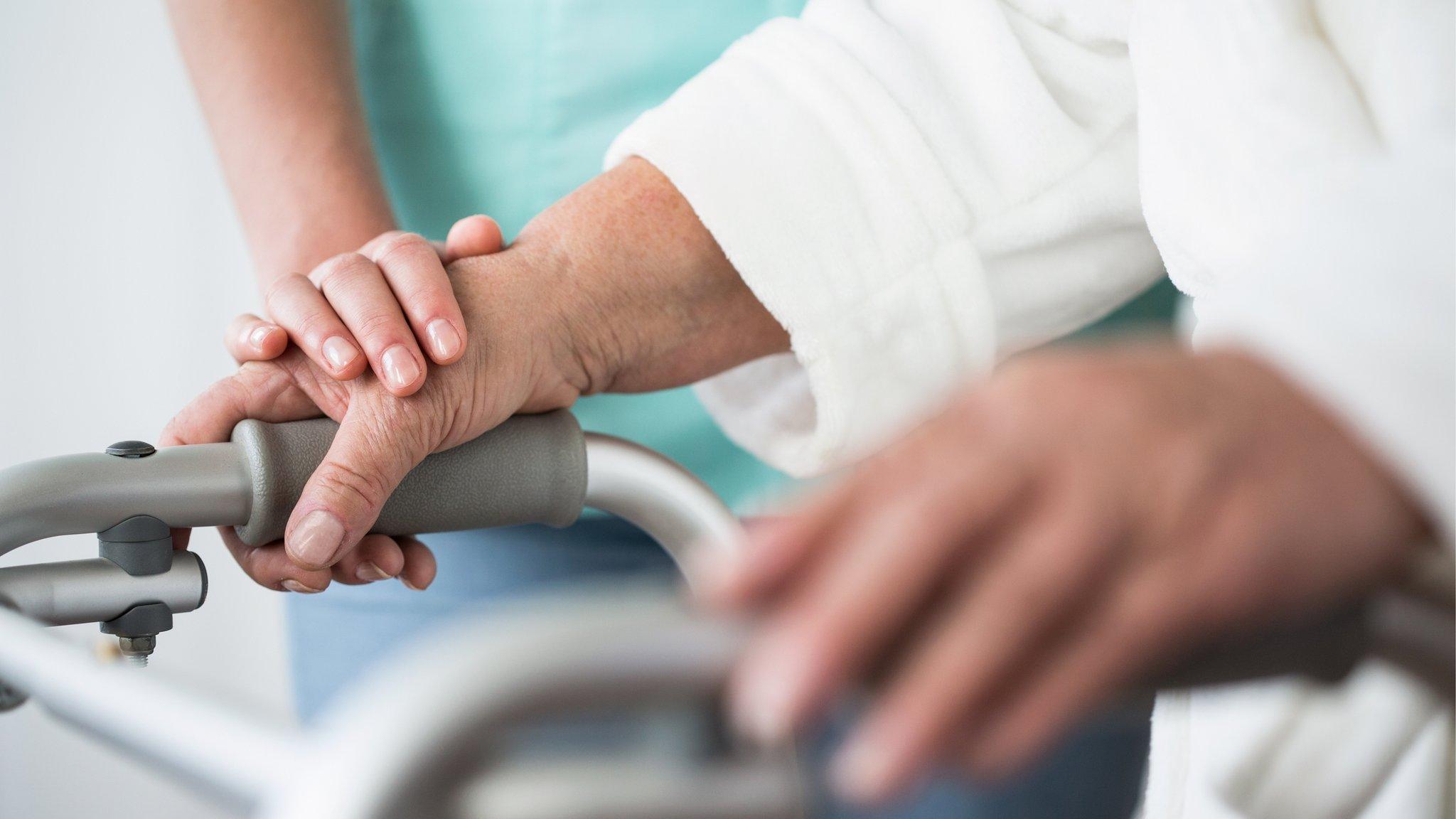
- Published8 February 2017

- Published6 January 2017
